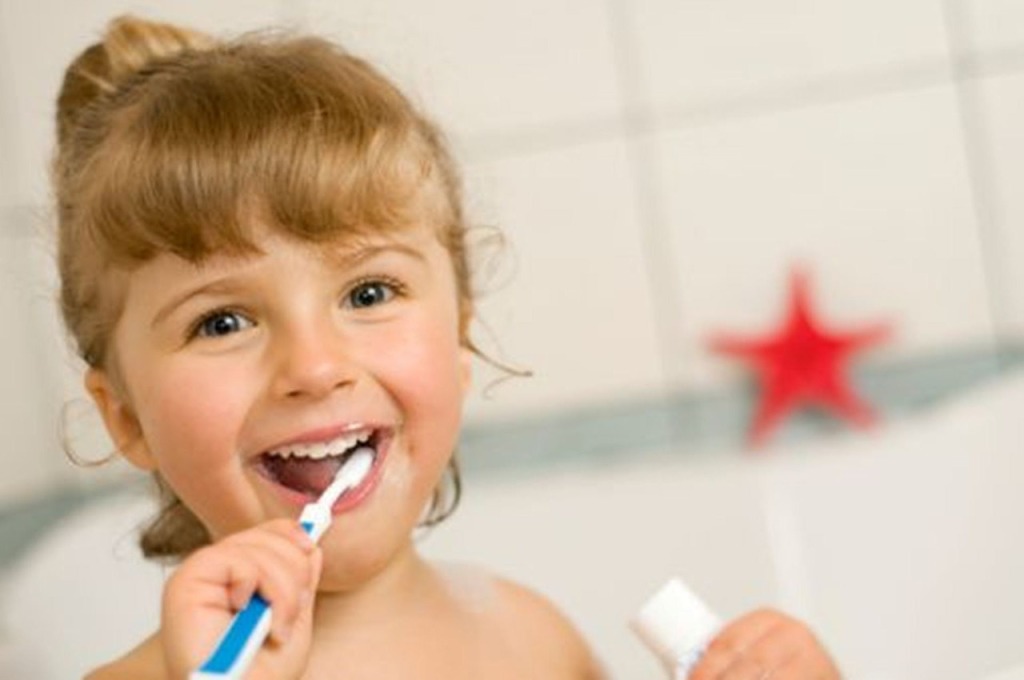 One of the most challenging aspects of being a parent is the bi-daily struggle of getting your children to brush their teeth. Parents and dentists alike have been trying to devise a fool-proof way to make the task an easier one and while we haven’t heard of a single guaranteed method – yet – there are several common approaches that help when combined.
One of the most challenging aspects of being a parent is the bi-daily struggle of getting your children to brush their teeth. Parents and dentists alike have been trying to devise a fool-proof way to make the task an easier one and while we haven’t heard of a single guaranteed method – yet – there are several common approaches that help when combined.
Instill the Brushing Routine Early
The earlier you make brushing a normal part of the daily routine, the easier it will be to continue during the child’s difficult years. By early, we even mean as young as infancy when the first teeth start to poke through the gums. There is a proper way to maintain healthy baby teeth and carrying on these practices will mean the child will never have known a time when teeth weren’t a priority. Stick to pre-breakfast and pre-bedtime brushes so as to avoid brushing after a meal, which can actually do more harm than good.
Brush With Them
Children imitate everything their parents do, so why not take advantage of this by brushing your teeth at the same time as they do? This way, you can monitor how long and how well they brush and if corrections need to be made, teach them at an early age. We recommend setting a timer for two minutes to make sure the entire time is used to brush properly. Maintain the parent-child brushing experience for a few years and then slowly begin to remove yourself from one of the brushings a day. They will eventually assume responsibility with a little positive encouragement for being a big boy or big girl.
RELATED: Why Kids Need to Practice Good Oral Hygiene Early
Positive Reinforcement
Avoid bribery at all costs! There is a difference between bribery and positive reinforcement: while both involve the child receiving a reward, bribery indicates that the parent offers the reward BEFORE the payment is made (in this case, brushing their teeth) and positive reinforcement occurs AFTER the child has brushed their teeth. This way, the child learns that he or she will not obtain the reward until they complete their end of the bargain. The reward should not be after each brushing, but sporadically as a sign of good faith and that the parent recognizes the child’s ability to brush on their own.
SEE ALSO: When Can Children Get Invisalign?
Make the Dentist a Pleasant Experience
Children learn to fear the dentist from a variety of sources, such as siblings or classmates with unpleasant experiences, the sounds associated with the dentist’s office and even the negative portrayal of dentist visits on television and in movies. You can counter each of these experiences by:
- making the dentist an approachable figure for your child
- showing excitement during your personal trips to the dentist
- letting the child tag along to meet the dentist who will work with them later on
- finding the right dentist who will make oral hygiene a pleasant experience for everyone
Duffield Dentistry is Here for your Family
We know it can be difficult for you to trust anyone with your children and that’s why we strive to make the dentist experience a warm and welcoming one. Dr. Duffield and his staff are dedicated to using the most up-to-date technologies to create an inviting environment so your children feel as relaxed as possible. Call us at 877-630-7410 to learn about our services or schedule a visit at your convenience.

